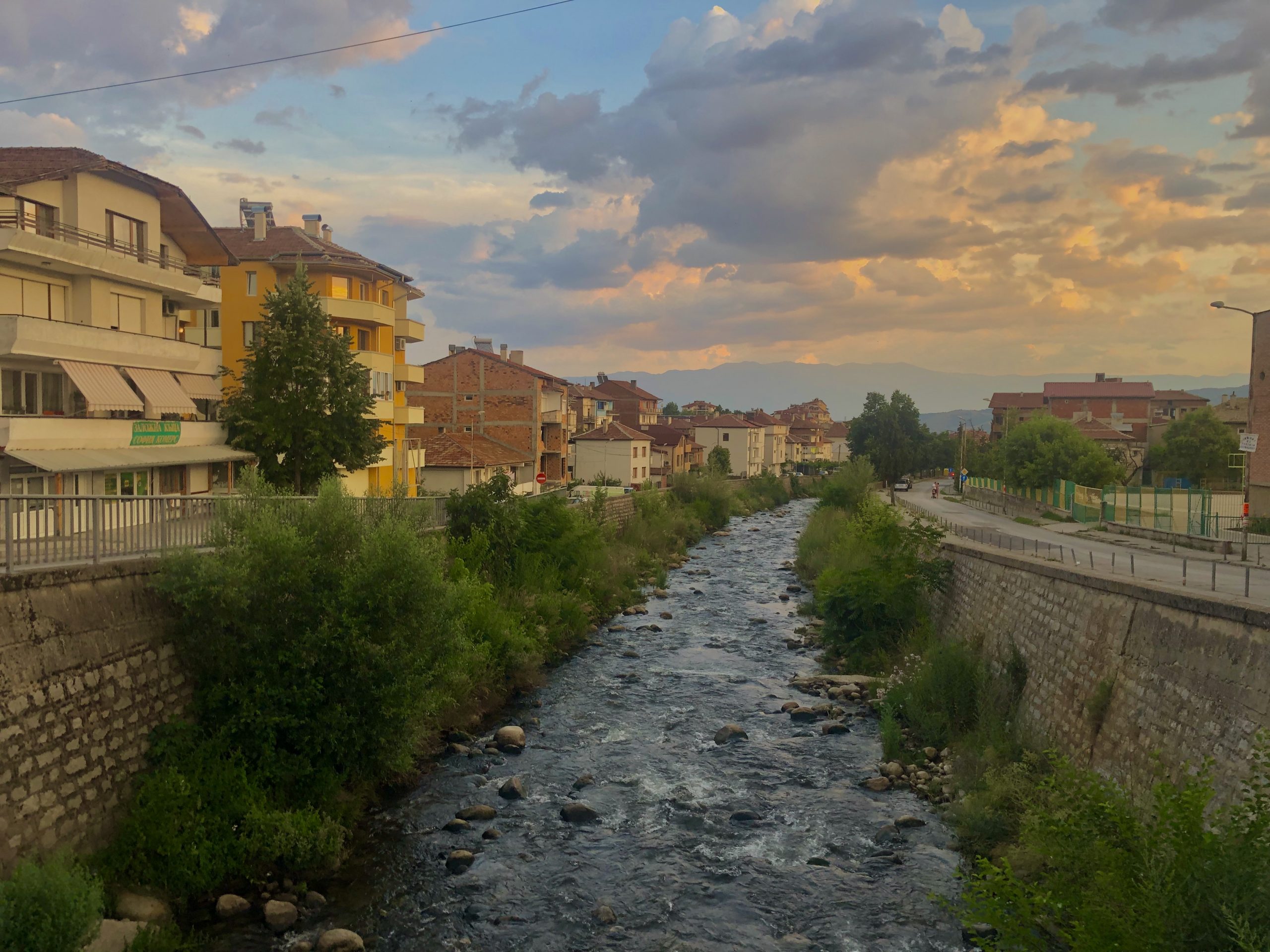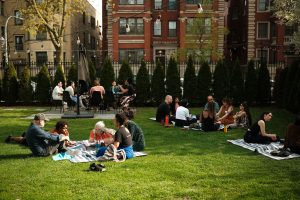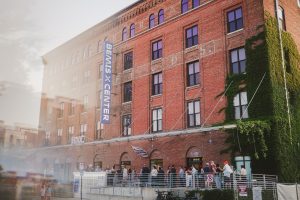I have been thinking, lately, about what it means to want a home. Actually, I have been thinking about what it means to want a home for the last fourteen years of my life, except only recently have I begun thinking about it obsessively. I mean, if home becomes reconfigured into something you are constantly striving for, can you ever truly have it? If your entire relationality to a safe space is summed up in yearning, how can you ever truly trust or know it? Is home a birthright?
I have no actual answers to these questions. All I know is, I was born across the Atlantic, in a small country known as Bulgaria, in a southwestern city almost at the border of Greece and Macedonia, called Sandanski–the hottest city in the state. My mother’s body was my first home and when I emerged screaming and crying, I was baptized into an air that would soon expel me, too.
When a home is unable to provide for you, you find your own way out. At least, that’s what my parents did. Newly married, my father left my mother for the States, where he worked for months, breathing in a foreign womb, alone, while she gave birth to me–also alone. I wonder sometimes if our cries sounded the same. When I was seven years old, the distance was obviously straining the relationship–it is not realistic to exist on separate continents for seven years of marriage, existing in different worlds, only seeing each other for a couple of months every year while spawning two children. Eventually, my mother packed us up and on a day in May of 2007 I found myself, for the first time, on foreign soil in the Northwestern suburbs of Chicago.
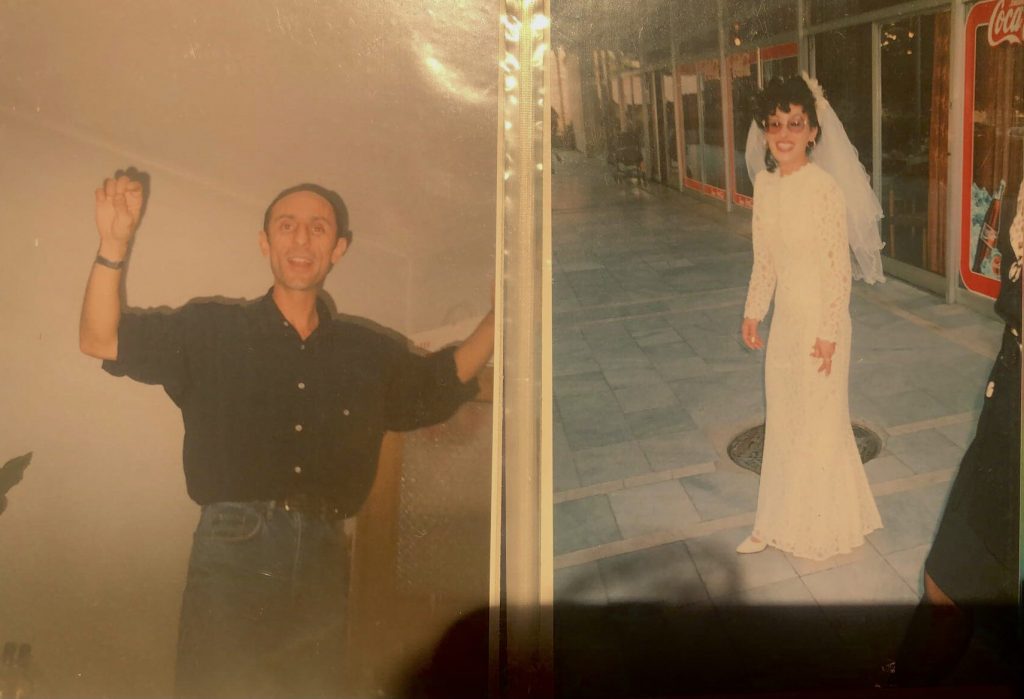
Home and history and personhood are stored up in the language of a people. There is so much of language that exists out of cultural necessity; so much of language is born through way of life. In this way, I believe we are all born into systems that create us–ones that we have to conform to. There is so much of my first couple of years in America that I do not remember–partly because it was traumatic and partly because I had no language with which to commit it to memory. This is the thing about being between two languages: your brain is scrambling for words to tie to experiences.
At school, I was throwing my whole weight into English, and at home I was becoming undone. The first time I realized I no longer naturally thought in Bulgarian–that the internal landscape of my consciousness was recorded in English–I couldn’t move. There is something so demoralizing about picking about in your brain and seeing everything anew for the first time. Like all the file cabinets had been translated overnight and there was no way for me to process information the way I used to ever again. Since then, I have not been able to switch back to thinking in Bulgarian. Of course, there are times when I force myself to, just for practice, but it never lasts. This shift, to me, has always been symbolic of some unclosable gap. Like up until that moment, maybe there was a chance we would be moving back “home,” but after a personal re-coding, I subconsciously knew we were here for good.
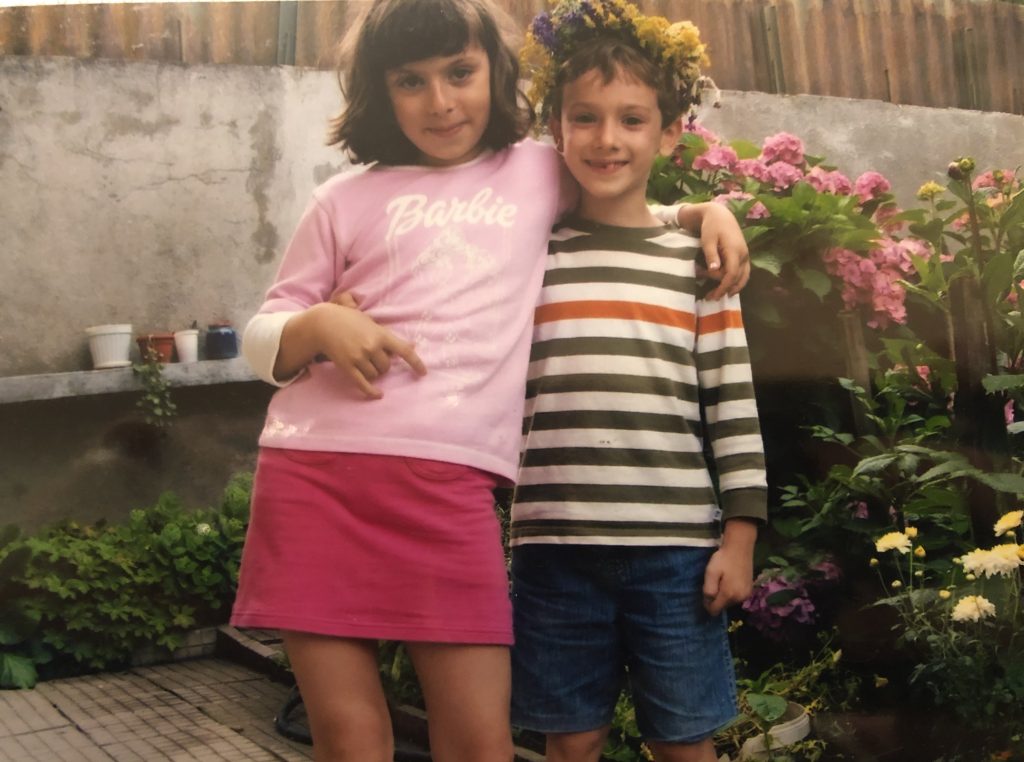
The first way in which we know ourselves in language is by our names–personal signifiers, and yet also situational ones. My name signifies that I am not from here. It announces an othering in the way that an accent does. And this othering had me tripping over shame years before I understood the weight of the word. Shame. So much of language is tied up in hierarchy and shame, whether we are willing to acknowledge it or not. The first time kids from my grade school made puns involving my name I wanted to disappear, to be known under a different alias – one that wasn’t so foreign to where I found myself. I have been ashamed of not knowing English, of my name, of my parent’s thick accents, of the slow loss of my mother tongue, of talking about any of this. I have been ashamed about being ashamed, which is the worst of its kind. My family’s language, over the course of years, has become a playground in which the rules are all arbitrary, in which shame is concealed and then revealed in violent outbursts. Each of us carries the wound of a home lost in the mother tongue and each of us chokes it out differently. When I say, “it wasn’t my choice to move here,” I mean “it isn’t my fault I am forgetting Bulgarian.” When my mother says, “I’m tired of my life,” she means “I resent you for having us move here.” When my father says, “You think I want to live like this?” he means “I have sacrificed everything for you.” But there is no way to translate all of this. There is no common tongue yet for that kind of hurt.
A home does not claim you. All my life I have craved knowing a home and a city the way some people do. Like the back of their hands, like a breathing entity that coexists with you. Of course, I have the city in which I was born, Sandanski, Bulgaria, which I will always consider my city. My city as in, my heart is in that city; my city as in, one time, when we were there for the summer and the hairdresser asked about whether I like it better “there or here,” my heart climbed into my throat. It was the kind of crying where, no matter how hard you try to stop, you know it will be futile, and so the hot trails of tears carved down my cheeks as I watched my hair fall and my face redden in the mirror. I remember the woman because she was incredibly kind and because, talking to her, I knew this was a city that belonged to her in a way it did not, and probably never will, belong to me. I could see that she had grieved in this city and the city had sparked her lonesome cigarette. I could see that she had a vocation here, that she was as much a part of all of it as the cobblestone road outside or the fig trees in the front yard. And I, stumbling over my words–I, with my countdown of a roundtrip airline ticket–I stuck out like a tourist. Even if I was born there, even if my tongue first learned those sounds, too, even if we might have fallen and scraped our knees on the same cement when we were children, that city did not belong to me and neither did that land. Not in the way I wanted, anyway. And so, I let myself cry and she assured me I would find my way back as she continued snipping away parts of me that were already dead and would be laid to rest in a place I would soon be leaving, again.
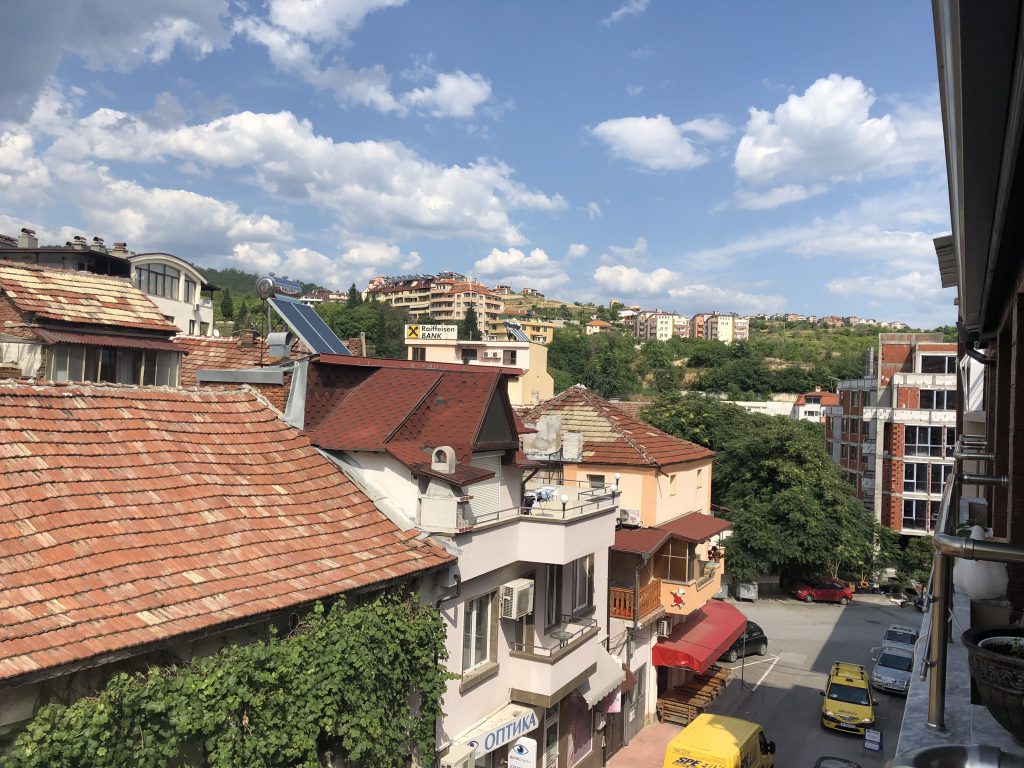
And then, of course, there is Chicago. But I cannot claim this city, either. This is a city that I was forced into. A city which I grieved coming back to, not because I hated it, far from that, but because coming back felt like being ripped from the source. It felt like tearing off an arm and being expected to carry on like you never needed it in the first place. I also do not believe I have any claim to it, really. I grew up in the suburbs for eleven years and I have no stake in the urban, even while residing in it to go to school. It remains a transitory lived experience. I don’t know the city like the back of my hand, and I don’t feel myself entrenched in the streets, the smells, the people. I don’t feel myself in the heart of what breathes at the center, the way many people relate to this beautiful place. And so, I cannot call it my own.
All this is to say, a home does not claim you in the ways a language does. The only capacity of existence we have is within the walls of understanding that language provides. Without it, we are nameless, unknowable, and these discourses around home and identity would not even be possible. To realize your reality is firmly rooted in something intangible like a language is also to realize that reality is a construction. I have talked at length with a dear friend about how the universes and fantastical worlds which we wish to exist are actually accessible to us because we create and sustain them. This is not so easy to illustrate or imagine because, for example, if I say I wish to be a fairy or a mermaid, that does not make me one, but I am permitted access to those universes through the language that myself and others utilize to create them. Their mere existence as concepts banks on the fact that we were able to conceive of and believe in them to whatever capacity we wish, which is what makes them magical in the first place. By facilitating this sort of playful relationship to language and reality one can, perhaps, use language as a tool in order to think about other seemingly intangible and painful discourses–such that home and identity sometimes are.
Last semester I had the privilege of attending a talk led by Kris Sealey, the brilliant author of Creolizing the Nation. The book is a rich synthesis on the resistance and reframing that creolization might provide in reimagining a nation and reconstructing its cultural and political functionalities to ones that better serve the community. To me, this concept of creolization is akin to the accessing of fantastical worlds and different universes in a way that is much more deeply rooted to the physicality and urgency of our current environment, and certainly that of this country. What touched me most during the talk, however, was when Sealey was answering a question regarding citizenship and belonging to a nation. As an immigrant herself, hailing from the Republic of Trinidad and residing now in the United States, Sealey broke some hidden floodgate of understanding in my brain when she reframed the idea of belonging to a place or claiming an identity. Instead of having to choose between one home or another, instead of existing in a void both of these options occurring on opposite sides of a spectrum of self-inflicted violence –she says that we are free and welcome to exist in the liminal space of the in between. We do not have to belong to either one place or the other; we do not have to exist in a vacuum, one where we believe neither place will claim us, that nowhere holds an authentic field of belonging. Instead, we may meet ourselves in the middle of both identities. We can welcome that fact that home, language, a sense of self–none of these things are clear cut. We can grant ourselves the gift and the forgiveness of accepting both, of relishing in a lived experience that is neither one nor the other, but a blend–a creolization.
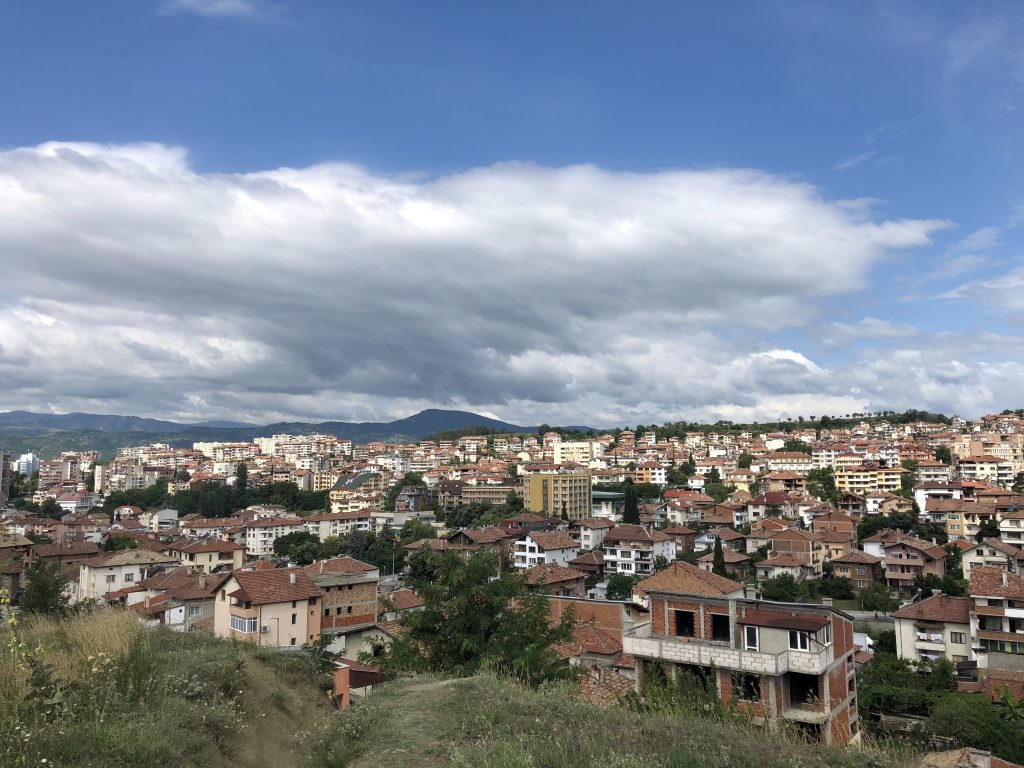
Deconstruction is a literary criticism pioneered by theorist Jacques Derrida that took hold in the late 1960s. His ideation around language upholds doubleness as a virtue. Derrida rejected presupposed notions of binary hierarchies and instead maintained difference and differance as fundamental to the structure and system of language. This is to say that there are always two separate meanings at the heart of a word or a text. Like the word pharmakon, a Greek word meaning both poison and remedy. When translators have worked with this word, they have often attempted to isolate its meaning, translate it one way or another depending on what the given passage calls for. This, however, collapses and disappears the word. To choose one meaning or the other is to negate the point of the phrase, to deny its true essence in favor of a one-dimensional expression. I am starting to believe that an immigrant is also a pharmakon. To attempt to define myself one way or another, to attempt to choose where my “true home” is, to attempt to collapse myself into one category–all this would mean a negation of the self. All this would mean I am only poison or only remedy, but I know I am both.
It has taken me a long time to come to any such revelation. To come to a place where I feel at peace not having a clear delineation. Because so much of the uproot in my life has been involuntary, so much of my language is fashioned around reaction. So much of my speech is woven into acknowledgement, rather than decision. And it is a long, long road. I have been living in the United States for fourteen years now and some days I still wake up thinking I am on the wrong side of the globe. Other days I wake up and I don’t know how to make two languages coexist inside of me since they are both equally deserving of being there. And when people ask me where I am from, there is still an unbridgeable gap of silence before my answer. I don’t want to spin this in a positive light at the end, when it has been far from an uplifting struggle, one that is far from over. There is no end in sight when it comes to an understanding of personhood and the places that bear us. There is no end in sight when it comes to giving yourself grace, over and over again, in all the words you can string together to do so. But there is grace–sometimes in very unexpected moments. And there are connections and roads and people you would have never dreamed possible. At the end, there is always you, as a home you must choose, over and over again, and the language which you choose to construct your reality. The home you want might never be yours, but you can construct an entirely new one. Until the day that you do – let the liminal space be home. Let the double meaning of your words be home. Allow everything that you learn to be the medicine and poison that it can be. And if language is a home, then you can always wield and relearn it, like you would yourself.
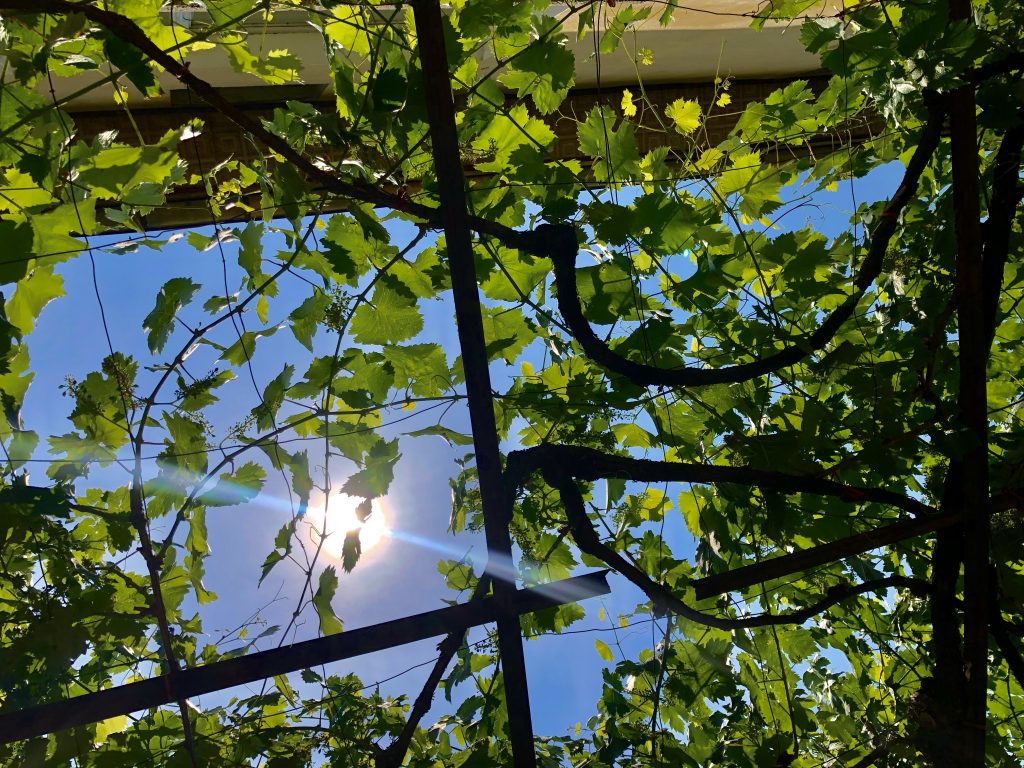
Works Cited
Derrida, Jacques. “Differance .” Literary Theory: An Anthology, edited by Julie Rivkin and Michael Ryan , Blackwell Publishing Ltd, 2004, pp. 278–287.
Schopenhauer, Arthur. The World As Will and Idea . Translated by R. B. Haldane and J Kemp , Seventh ed., Kegan Paul, Trench, Trubner & Co., 1909.
Sealey, Kris F. Creolizing the Nation. EVANSTON, ILLINOIS: Northwestern University Press, 2020. doi:10.2307/j.ctv14t4816.5.
Featured image: A photograph of the Struma river, which cuts through the middle of the image (and also through the middle of Sandanski, Bulgaria), flanked by levees on either side. The water level is pretty low, so there is vegetation growing along the levees. On the left side of the river is a street and apartment complexes. On the right there is a street beyond which the edges of a school yard are visible. There is a mountain range visible in the distance. Photo by the author.
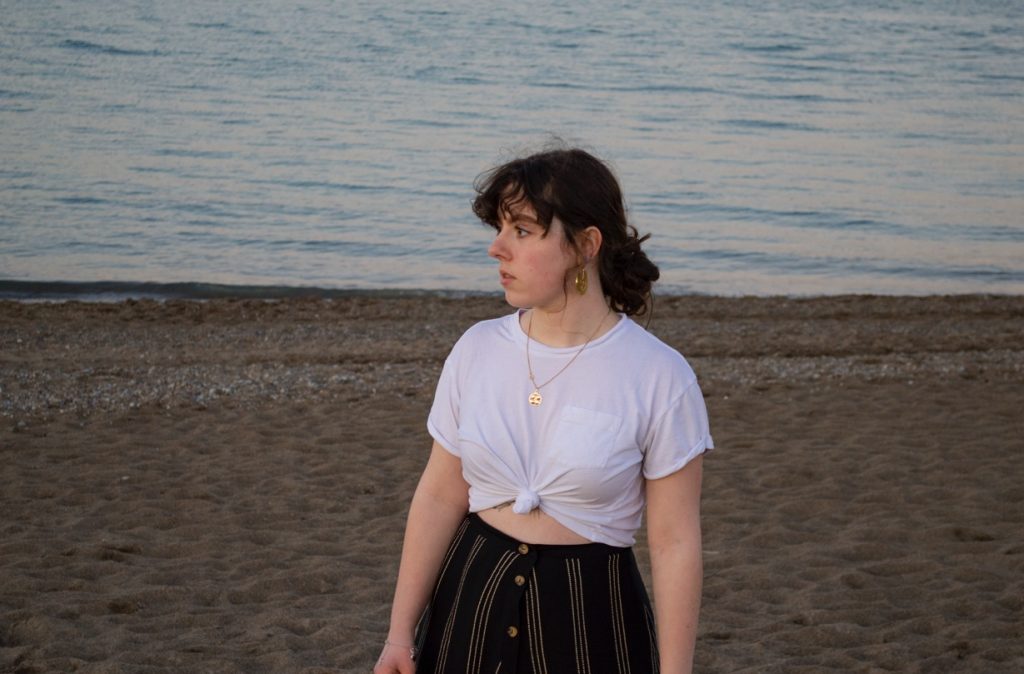
Yoana Tosheva (she/her) is a visual artist, a writer, and a student at Loyola University Chicago, pursuing degrees in English and Art History. Her work has been published in Diminuendo, Wack Mag, Anser Journal, The Beatnik Cowboy, and elsewhere. She runs a blog about music which you may peruse at https://collectivecadence.home.blog/. Her visual art can be found on Instagram @yoana_art.
